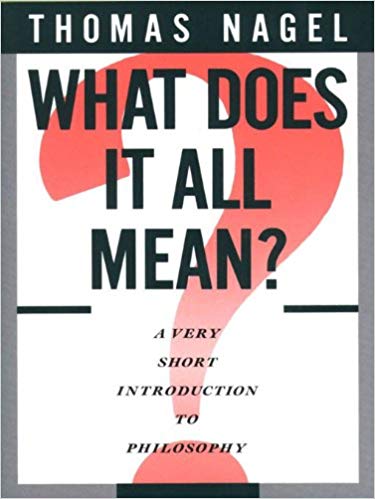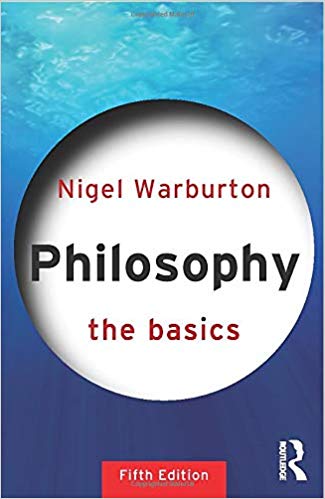Philosophical Books
I used to think philosophy was silly, a bunch of intellectuals sitting around pontificating about the meaning of meaning or whatever. Seemed like a waste of time, especially when I could be reading about SCIENCE. In 2018 I took a solo road trip for 3 weeks just prior to starting residency (see here). Being away from friends and family for a while, being truly alone with my thoughts, especially right at a major junction in my life, I started asking some questions that I'd never really thought about before. It didn't help that I'd just watched Donnie Darko at the same time. When I mentioned these new thoughts to a friend, she recommended looking into some books on philosophy, and there I might gain some understanding. Why not try it? So I bought some books, and never looked back. Reading about science has helped my knowledge and enjoyment of the world, but adding in philosophy has definitely helped my understanding. Here are a few introductory books I've enjoyed.

What Does it All Mean? by Thomas Nagel
The thinnest, shortest philosophy book I found, it is the perfect start for someone (like me) who knows absolutely nothing about philosophy. Each brief chapter focuses on a broad question in philosophy. Obviously it is unable to answer these complex questions in such a short space, but it raises questions to answer through further reading. An excellent introduction to the subject.

Philosophy: The Basics, by Nigel Warburton
This is a succinct yet excellent overview of the broadest most important questions in philosophy. What is reality? Does God exist? What is art? The book is not an answer to these questions, but an attempt to explore the questions from different schools of philosophy. I found it to be extremely informative and a relatively quick read.

The Philosophy Book, by DK Publishing
An excellent but in-depth introduction to philosophy. The book examines philosophy from the perspective of different philosophers through the ages, boiling down their theories and thoughts to a single memorable phrase or concept. The goal is not to be comprehensive, but to spark interest and ask more questions. Each philosopher's section makes mention of further reading. I have always been a big fan of DK publishing, and these books have only made me like them more.

Man's Search for Meaning, by Victor Frankl
One of the ultimate books in contemporary existensial thought, Dr. Frankl poses the question of "what is our purpose?" then attempts to answer it. A survivor of the Holocaust, he recollects some of his experiences and how he sustained the will to survive the unimaginable experience. I found the most interesting aspects to be the question, how can he work as a psychologist when none of his patient's concerns can ever compare to what he went through? His answer is that suffering is relative, there is no competition. I found this conclusion fascinating and applicable to work in the medical field, where it can be a struggle to sustain understanding for the suffering of others.

Philosophy of Science, by Samir Okasha
One of the many books in the "Very Short Introduction" Oxford book series. As the title so obviously states, it's a book about the philosophy of science. I really enjoy this topic as it is integral to critical thinking and understanding how exactly "science" works, in order to be a good scientist, doctor, and thinker. As with many philosophy books, it doesn't all sink in the first time you read it, but it helps open the door to some longer, denser reads.